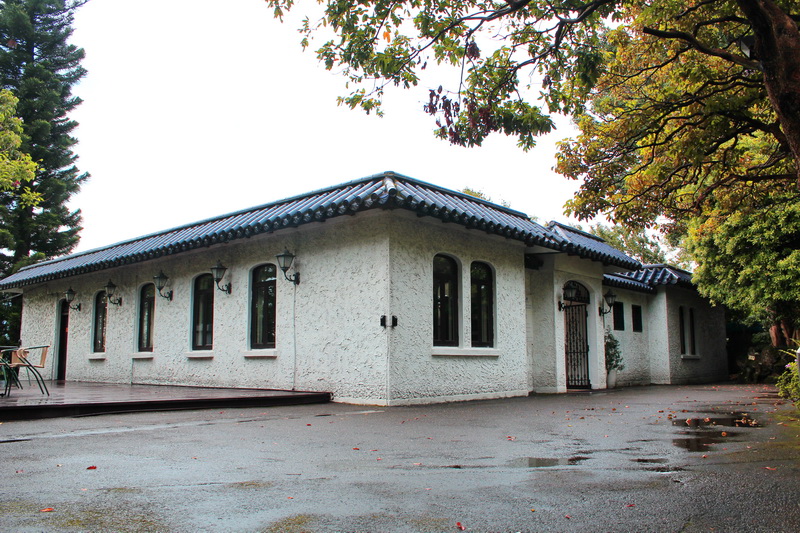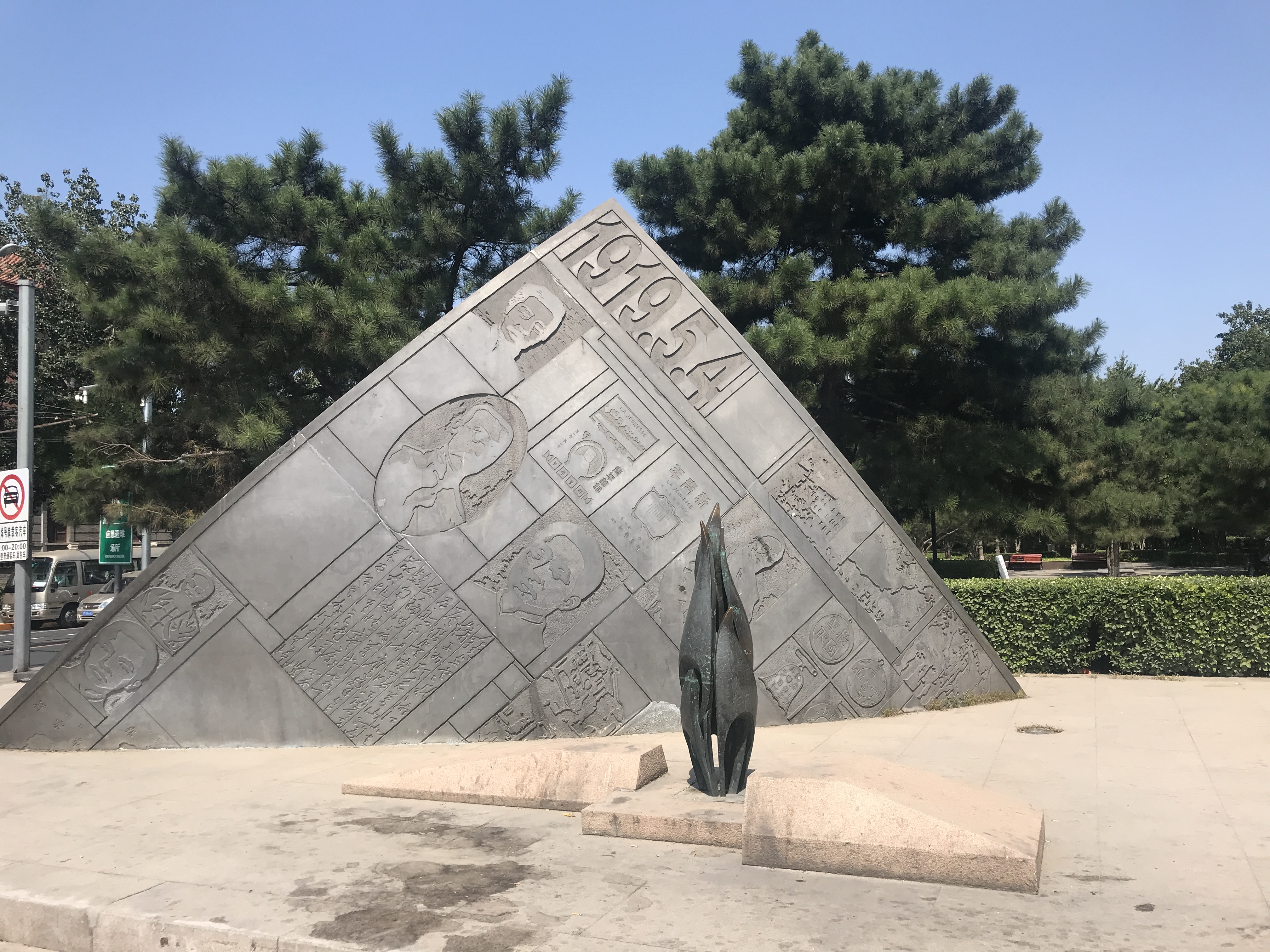|
Ma Hsin-yeh
Ma Hsin-yeh ( zh, c=馬星野, p=Mǎ Xīngyě, w=Ma3 Hsing1-yeh3; September 13, 1909 – March 11, 1991) was born in Pingyang County, Zhejiang Province, and enjoyed a notable career as a pioneering Chinese journalist, educator, publisher, government executive and diplomat. Ma was known as the "King of Journalism" (新聞王), and collectively with his native place compatriots Xie Xia-xun the "Chess King" (謝俠遜; “棋王”) and Su Bu-qing the "Math King" (蘇步青; "數學王"), were known as the "Three Kings of Pingyang" (平陽三王). The Pingyang County Government has also officially named Ma as one of the top-ten most significant cultural-historical figures of the county. Ma adopted his penname Hsin-yeh (星 xīng 野 yě) as his personal name some time following his study abroad at the University of Missouri School of Journalism. The name incorporates the two characters for "stars" and "plain" from a line in the Tang dynasty poet Du Fu's poem ''Thoughts When Traveling ... [...More Info...] [...Related Items...] OR: [Wikipedia] [Google] [Baidu] |
Zhejiang Province
) , translit_lang1_type2 = , translit_lang1_info2 = ( Hangzhounese) ( Ningbonese) (Wenzhounese) , image_skyline = 玉甑峰全貌 - panoramio.jpg , image_caption = View of the Yandang Mountains , image_map = Zhejiang in China (+all claims hatched).svg , mapsize = 275px , map_caption = Location of Zhejiang in China , coordinates = , subdivision_type = Country , subdivision_name = China , named_for = Old name of Qiantang River , seat_type = Capital and largest city , seat = Hangzhou , established_title = Annexation by the Qin dynasty , established_date = 222 BC , established_title2 = Jiangnandong Circuit , established_date2 = 626 , established_title3 = Liangzhe Circuit , established_date3 = 997 , established_title4 = Zhejiang Province formed , established_date4 = 1368 , established_title5 = Republican Period , established_date5 = 1 January 1912 , established_title6 = ... [...More Info...] [...Related Items...] OR: [Wikipedia] [Google] [Baidu] |
China Times
The ''China Times'' (, abbr. ) is a daily Chinese-language newspaper published in Taiwan and one of the most widely circulated newspapers in Taiwan. Founded in 1950, the China Times Group was acquired by food and media conglomerate Want Want, which also owns TV stations CTV and CTiTV. The paper is generally perceived by the Taiwanese general public to be supportive of the pan-Blue coalition, which consists of the Kuomintang and allied political groups—while also facing allegations that it supports the political priorities of the Chinese Communist Party (CCP). History The ''China Times'' was founded in February 1950 under the name ''Credit News'' (), and focused mainly on price indices. The name changed on January 1, 1960, to ''Credit Newspaper'' (), a daily with comprehensive news coverage. Color printing was introduced on March 29, 1968, the first newspaper in Asia to make the move. On September 1, 1968, the name changed once again to ''China Times'', presently based in the ... [...More Info...] [...Related Items...] OR: [Wikipedia] [Google] [Baidu] |
Beijing
Beijing, Chinese postal romanization, previously romanized as Peking, is the capital city of China. With more than 22 million residents, it is the world's List of national capitals by population, most populous national capital city as well as China's List of cities in China by population, second largest city by urban area after Shanghai. It is located in North China, Northern China, and is governed as a Direct-administered municipalities of China, municipality under the direct administration of the Government of the People's Republic of China, State Council with List of administrative divisions of Beijing, 16 urban, suburban, and rural districts.Figures based on 2006 statistics published in 2007 National Statistical Yearbook of China and available online at archive. Retrieved 21 April 2009. Beijing is mostly surrounded by Hebei Province and neighbors Tianjin to the southeast; together, the three divisions form the Jing-Jin-Ji, Jing-Jin-Ji cluster. Beijing is a global city and ... [...More Info...] [...Related Items...] OR: [Wikipedia] [Google] [Baidu] |
Luo Jialun
Luo Jialun (; December 21, 1897 - December 25, 1969), was the former Chinese Minister of Education, historian, diplomat and political activist. A noted scholar, he was one of the leaders of the May Fourth Movement in 1919. Subsequently, being distinguished as President of various prestigious Chinese universities in the interwar period. In the fall of 1946 he was appointed by the Nationalist Government as China's first Ambassador to India, a full year before India gained sovereignty from the United Kingdom/British Empire. His tenure as Ambassador saw the escalation of the Chinese Civil War and subsequent retreat to Taiwan, of the Nationalist Forces under Chiang Kai-Shek, from whom the Indian Government withdrew diplomatic recognition, according it instead to the victorious Communists under Mao Zedong. Luo remained in India till 1952 when he rejoined his family on Taiwan, where they had retreated with the Nationalists. He continued to live there in his retirement. On May 29, 2018, ... [...More Info...] [...Related Items...] OR: [Wikipedia] [Google] [Baidu] |
Nanjing
Nanjing or Nanking is the capital of Jiangsu, a province in East China. The city, which is located in the southwestern corner of the province, has 11 districts, an administrative area of , and a population of 9,423,400. Situated in the Yangtze River Delta, Nanjing has a prominent place in Chinese history and Chinese culture, culture, having served as the historical capitals of China, capital of various Dynasties in Chinese history, Chinese dynasties, kingdoms and republican governments dating from the 3rd century to 1949, and has thus long been a major center of culture, education, research, politics, economy, transport networks and tourism, being the home to Port of Nanjing, one of the world's largest inland ports. The city is also one of the fifteen sub-provincial city, sub-provincial cities in the People's Republic of China's Administrative divisions of the People's Republic of China, administrative structure, enjoying jurisdictional and economic autonomy only slightly les ... [...More Info...] [...Related Items...] OR: [Wikipedia] [Google] [Baidu] |
Central Party Affairs School
National Chengchi University () is a public research university in Taipei, Taiwan. First established in Nanjing in 1927, the university was subsequently reestablished in 1954 in Taiwan as the first reestablished "National University". The university, abbreviated as NCCU, specializes in arts and humanities, mass media, linguistics and literature, social sciences, economics, management, politics, and international affairs. It is the only publicly-funded university in Taiwan to provide courses in advertising, diplomacy, and several languages that are not taught at other institutions in Taiwan. The name ''Chengchi'' () means governance or politics, and refers to its founding in 1927 as a training institution for senior civil servants for the Nanjing Nationalist government of the Republic of China. The university has ties with academic institutions like Academia Sinica, National Yang Ming Chiao Tung University, National Taiwan University, and the National Palace Museum. The NCCU ... [...More Info...] [...Related Items...] OR: [Wikipedia] [Google] [Baidu] |
Gu Jiegang
, module = , workplaces = Peking University, Xiamen University, Sun Yat-sen University, Yenching University, Chinese Academy of Sciences, Chinese Academy of Social Sciences Gu Jiegang (8 May 1893 – 25 December 1980) was a Chinese historian, philologist, and folklorist, noted for his critiques of traditional historiography. Born to a family of scholars in Suzhou, he developed a great interest in philology and the Chinese classics from an early age. He became involved in radical politics following the 1911 Revolution, but grew disillusioned and began to focus on historical studies. He was admitted to Peking University, where became interested in critique of the classical histories, inspired by academics such as Wang Guowei and Hu Shih. After graduating in 1920, he was hired by the university; he became active in the study of folk songs and folklore while continuing his classical philological studies. He initiated a wave of scholarly controversy between the Doubting Antiquity ... [...More Info...] [...Related Items...] OR: [Wikipedia] [Google] [Baidu] |
Lu Xun
Lu Xun ( zh, c=魯迅, p=Lǔ Xùn, ; 25 September 188119 October 1936), pen name of Zhou Shuren, born Zhou Zhangshou, was a Chinese writer. A leading figure of modern Chinese literature, he wrote in both vernacular and literary Chinese as a novelist, literary critic, essayist, poet, translator and political commentator, known for his satirical, acerbic tone and critical reflections on Chinese history and culture. Lu was born into a declining family of landlords and scholar-officials in Shaoxing, Zhejiang. Although he initially aspired to take the imperial examinations, his family’s limited financial means compelled him to attend government-funded schools that offered a "Western-style education." After graduation, Lu pursued medical studies at Tohoku University in Japan but eventually dropped out, turning his attention to literature. Financial difficulties forced his return to China, where he taught at various secondary schools and colleges before taking a position at the Min ... [...More Info...] [...Related Items...] OR: [Wikipedia] [Google] [Baidu] |
Lin Yutang
Lin Yutang (10 October 1895 – 26 March 1976) was a Chinese inventor, linguist, novelist, philosopher, and translator. One scholar commented that Lin's "particular blend of sophistication and casualness found a wide audience, and he became a major humorous and critical presence", and he made compilations and translations of the Chinese classics into English. His ''My Country and My People'' (1935) reached the top of the ''New York Times'' bestseller list. Some of his writings criticized the racism and imperialism of the West. Early life Lin was born in 1895 in the town of Banzai, Fujian. His father was a Christian minister. His journey of faith from Christianity to Taoism and Buddhism, and back to Christianity in his later life was recorded in his book ''From Pagan to Christian'' (1959). Academia Lin studied for his bachelor's degree at St. John's University, Shanghai, St. John's University, a Christian university in Shanghai. Then he received a half-scholarship to continue stu ... [...More Info...] [...Related Items...] OR: [Wikipedia] [Google] [Baidu] |
Northern Expedition
The Northern Expedition was a military campaign launched by the National Revolutionary Army (NRA) of the Kuomintang (KMT) against the Beiyang government and other regional warlords in 1926. The purpose of the campaign was to reunify China proper, China, which Warlord Era, had become fragmented in the aftermath of the 1911 Revolution. The expedition was led by Generalissimo Chiang Kai-shek, and was divided into two phases. The first phase ended in a 1927 political split between two factions of the KMT: the right-leaning Nanjing Nationalist government, faction, led by Chiang, and the Government of the Republic of China in Wuhan, left-leaning faction in Wuhan, led by Wang Jingwei. The split was partially motivated by Chiang's Shanghai massacre, Shanghai Massacre of Communists within the KMT, which marked the end of the First United Front. In an effort to mend this schism, Chiang Kai-shek stepped down as the commander of the NRA in August 1927, and went into exile in Japan. The sec ... [...More Info...] [...Related Items...] OR: [Wikipedia] [Google] [Baidu] |
May Fourth Movement
The May Fourth Movement was a Chinese cultural and anti-imperialist political movement which grew out of student protests in Beijing on May 4, 1919. Students gathered in front of Tiananmen to protest the Chinese government's weak response to the Treaty of Versailles decision to allow the Empire of Japan to retain territories in Shandong that had been surrendered by the German Empire after the Siege of Tsingtao in 1914. The demonstrations sparked nationwide protests and spurred an upsurge in Chinese nationalism, a shift towards political mobilization, away from cultural activities, and a move towards a populist base, away from traditional intellectual and political elites. The May Fourth demonstrations marked a turning point in a broader anti-traditional New Culture Movement (1915–1921) that sought to replace traditional Confucian values and was itself a continuation of late Qing reforms. Even after 1919, these educated "new youths" still defined their role with a tradi ... [...More Info...] [...Related Items...] OR: [Wikipedia] [Google] [Baidu] |






